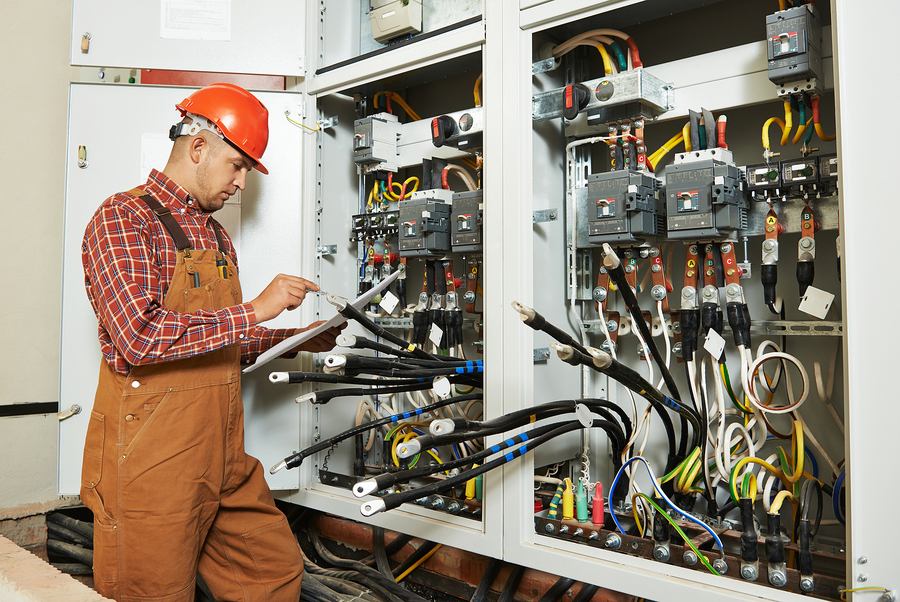Understanding Electrical Shorts

August 19, 2025
Understanding Electrical Shorts
Electricity is essential to our lives, powering everything from lights to appliances. However, with all its benefits, there can be dangers if something goes wrong. One common issue people encounter is an electrical short. Neighborhood Electric explores what an electrical short is, what causes it, how to deal with it, and when to contact an electrician to keep your home safe.
What Is an Electrical Short?
An electrical short, or short circuit, occurs when electricity takes an unintended path. Normally, electricity flows through wires and circuits to power your devices. But when a short happens, the electricity moves outside its intended path.
Imagine a river flowing smoothly along its course. Now, if the river suddenly breaks through its banks, flooding the area around it, that’s similar to what happens during an electrical short. The electricity escapes its safe pathway, causing damage or danger.
Common Causes of Electrical Shorts
There are several reasons why an electrical short might happen. Understanding these causes can help you prevent problems before they start.
1. Damaged Wires
Over time, wires can become damaged due to wear and tear, rodents chewing on them, or poor installation. When the protective coating on wires wears out or breaks, the exposed wires can touch each other, leading to a short circuit.
2. Loose Connections
Sometimes, connections in your electrical system can become loose. When connections aren’t tight, the cables might touch in ways they shouldn’t, causing a short. Regular checks by an electrical repair service can help catch these issues before they become serious.
3. Faulty Appliances
Appliances that are old or not properly maintained can also cause electrical shorts. If there’s a problem inside the appliance, it might cause electricity to flow in the wrong direction. For instance, if a wire inside a toaster becomes loose and touches another component, it could create a short circuit.
Signs of an Electrical Short
Knowing the signs of an electrical short can help you identify a problem early. Here are a few things to watch for:
If your lights flicker or dim unexpectedly, it might indicate an electrical short. While flickering can be caused by other issues, having an electrician check it out is worth it.
A burning smell from outlets, switches, or appliances is a warning sign. If you notice this smell, turn off the power and call an electrical repair service immediately.
- 3. Tripped Circuit Breakers
Circuit breakers are designed to protect your home by shutting off power when there’s too much current. If your circuit breaker trips frequently, it could be due to an electrical short.
What to Do if You Suspect an Electrical Short
If you think there’s an electrical short in your home, acting quickly is essential to avoid potential dangers. Here’s what you should do:
If you suspect a short circuit, immediately turn off the power to the affected area. If you’re unsure which breaker controls the area, turning off the main breaker that powers the whole house is safer.
Electrical shorts are something you should avoid trying to fix on your own. Handling electricity without proper knowledge and tools can be extremely dangerous. Instead, call a qualified electrician to inspect the problem. A professional will have the right experience and equipment to safely diagnose and fix the issue.
- 3. Schedule Regular Inspections
If you haven’t had any issues, scheduling regular electrical inspections is a good idea. An electrical repair service can check your wiring, outlets, and appliances to ensure everything is in good condition. This preventive measure can save you from costly repairs and potential hazards.
Preventing Electrical Shorts
While you can’t always prevent electrical shorts, there are steps you can take to reduce the risk:
- 1. Use Quality Appliances
Always buy appliances from reputable manufacturers and avoid using old or damaged appliances. Regularly inspect your appliances for signs of wear and tear, and replace them when necessary.
- 2. Avoid Overloading Circuits
Plugging too many devices into one outlet can cause overheating and increase the risk of a short circuit. Spread your electrical devices across different outlets and avoid using too many extension cords.
Regularly checking your electrical system by a licensed electrician is one of the best ways to prevent electrical shorts. An electrical repair service can identify potential issues early and ensure your home remains safe.
Neighborhood Electric
Understanding electrical shorts is vital to keeping your home safe and your electrical system running smoothly. By knowing the causes, recognizing the signs, and taking appropriate action, you can protect your home and family from the dangers of electrical shorts. Remember, when dealing with electricity, it’s always best to call a professional electrician to ensure the job is done safely and correctly. Regular inspections by an electrical repair service can also help you avoid problems before they start. Stay safe, and keep your home’s electrical system in top condition!








